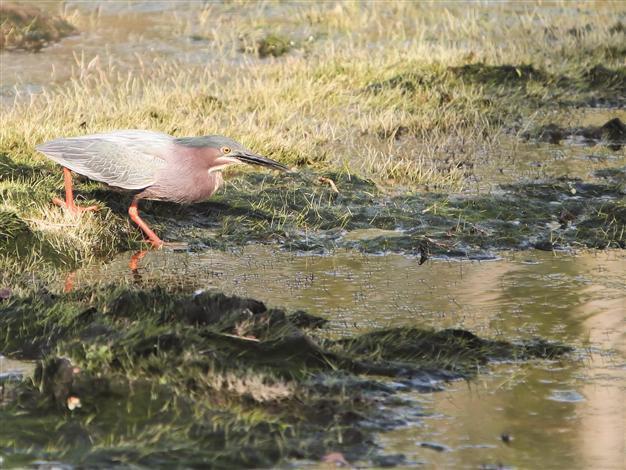Turkey regaining ecological richness through new project
ANKARA - Anatolia News Agency

‘The Bird Sanctuary Project’ aims to protect and develop wetlands. The bird sanctuaries host many rare species of birds.
Nature-lovers in Turkey are welcoming back some of the country’s ecological treasures thanks to new projects that are designed to regain some of the country’s biodiversity, particularly in wetlands.“The wetland areas are like open-air museums,” Natural Preservation and National Park Association General Manager Ahmet Özyanık recently told Anatolia news agency. “Turkey is now one of the richest countries in terms of wetland areas.”
The Natural Preservation and National Park Association’s projects will support the habitats of water birds, botanic gardens, rare plants and other natural areas.
“Turkey is very rich country in terms of botanic life. Turkey has a lot of ecological richness,” Özyanık said. “Wetland areas are important because they have a lot of biological diversity,” he said. “The wetlands are also valuable in terms of economic growth.”
There are more than 300 wetland areas in Turkey. “We need to protect and develop these sites,” the official said, adding that there were some usage criteria for the areas.
Bird sanctuary project
A project titled “The Bird Sanctuary Project” aims to protect and develop wetlands. “We first started this project in 2005, and we aim to share these rare wetlands with the public,” said Özkaynak, adding that the team conducting the project also aimed to develop ecotourism in such wetlands. “The project also aims to support the scientific research being conducted in those areas. These [activities] will help us preserve these areas,” Özyanık said.
Noting that there were many bird and plant species in the wetlands, Özkaynak said: “We can see white pelicans, other species of pelicans, cormorants and its species, flamingos, storks and many more species. These are exclusive areas in terms of biological diversity.”
The bird sanctuaries host many rare species of birds. The association has so far organized 13 projects in 13 wetlands in supporting the rare bird species in those areas.
“The projects were conducted in Balıkesir’s Manyas, Bolu’s Yeniçağa Lake, Adıyaman’s Gölbaşı Lake, Bursa’s Uluabat Lake, Konya’s Kozanlı, Sivas’ Tödürge Lake, Osmaniye’s Kirmitli, Muğla’s Dalyan Lake and Tuzla Lake, Izmir’s Gediz Tuzla Lake, İzmir’s Gediz Lake, Burdur’s Burdur Lake, Tokat’s Kaz Lake and Samsun’s Kızılırmak Lake,” he said.
The listed areas now have bird sanctuaries in marshy lands.
Six new projects on the way
Manyas Bird Paradise National Park has received an A-Level Bird Sanctuary Diploma from the European Union, Özyanık said.
New projects will continue in 2012, the official said, adding that they were planning to begin protecting habitats in the Afyonkarahisar Karakuyu wetlands, Eğirdir Lake, Kars Kuyucuk Lake, Osmaniye Kastabala Valley, Ardahan Putka and Çıldır Lake.
A total of 460 bird species are found currently in those wetlands. “Those wetlands are vital for those birds,” said Özyanık.
“During the migration time of birds, they need to rest in some places, and we support them and the environment and also nature by providing those wetlands to them for them to stay during the migration periods,” the official said.
















